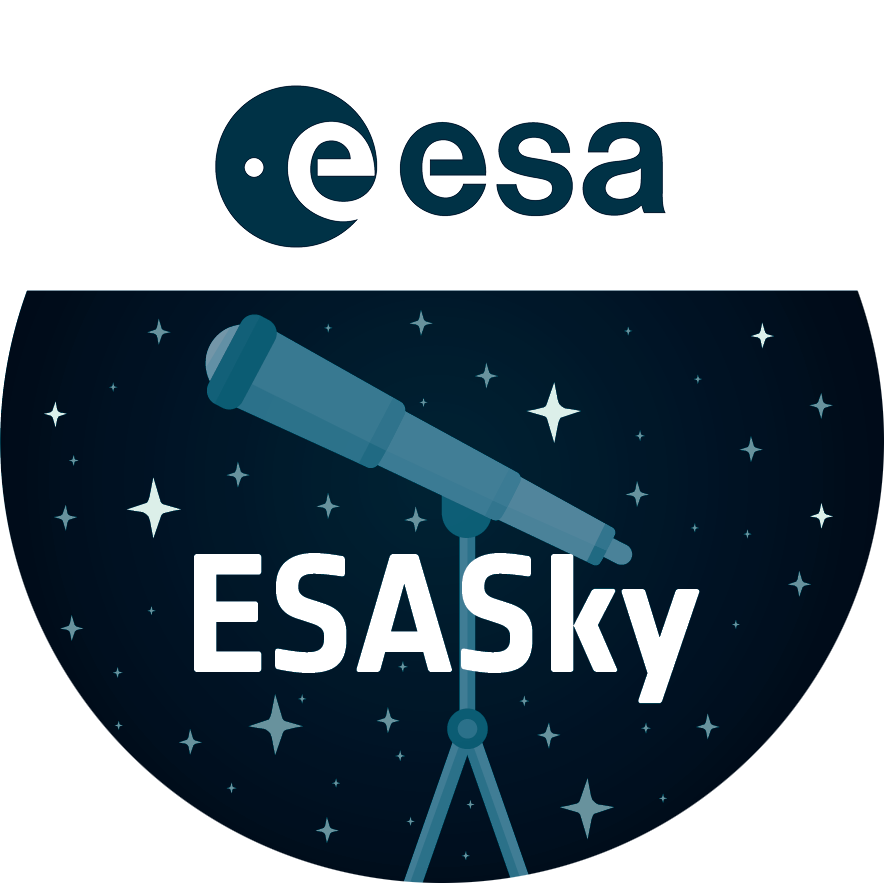About the Object
| Name: | Eagle Nebula, M16, NGC 6611 | |
|---|---|---|
| Distance: |
6500 light years | |
| Constellation: | Serpens Cauda | |
| Category: | MIRI Nebulae NIRCam | |
Coordinates
| Position (RA): | 18 18 54.29 |
|---|---|
| Position (Dec): | -13° 50' 35.65" |
| Field of view: | 3.56 x 3.33 arcminutes |
| Orientation: | North is 7.3° right of vertical |
Colours & filters
| Band | Wavelength | Telescope |
|---|---|---|
| Optical | 900 nm | James Webb Space Telescope NIRCam |
|
Infrared
P-alpha | 1.87 μm | James Webb Space Telescope NIRCam |
| Infrared | 7.7 μm | James Webb Space Telescope MIRI |
| Infrared | 2.0 μm | James Webb Space Telescope NIRCam |
| Infrared | 11 μm | James Webb Space Telescope MIRI |
|
Infrared
PAH | 3.35 μm | James Webb Space Telescope NIRCam |
| Infrared | 4.44 μm | James Webb Space Telescope NIRCam |
|
Infrared
molecular hydrogen | 4.7 μm | James Webb Space Telescope NIRCam |
| Infrared | 15 μm | James Webb Space Telescope MIRI |
Pillars of Creation (NIRCam and MIRI Composite Image)
By combining images of the iconic Pillars of Creation from two cameras aboard the NASA/ESA/CSA James Webb Space Telescope, the Universe has been framed in its infrared glory. Webb’s near-infrared image was fused with its mid-infrared image, setting this star-forming region ablaze with new details.
Myriad stars are spread throughout the scene. The stars primarily show up in near-infrared light, marking a contribution of Webb’s Near-Infrared Camera (NIRCam). Near-infrared light also reveals thousands of newly formed stars – look for bright orange spheres that lie just outside the dusty pillars.
In mid-infrared light, the dust is on full display. The contributions from Webb’s Mid-Infrared Instrument (MIRI) are most apparent in the layers of diffuse, orange dust that drape the top of the image, relaxing into a V. The densest regions of dust are cast in deep indigo hues, obscuring our view of the activities inside the dense pillars.
Dust also makes up the spire-like pillars that extend from the bottom left to the top right. This is one of the reasons why the region is overflowing with stars – dust is a major ingredient of star formation. When knots of gas and dust with sufficient mass form in the pillars, they begin to collapse under their own gravitational attraction, slowly heat up, and eventually form new stars. Newly formed stars are especially apparent at the edges of the top two pillars – they are practically bursting onto the scene.
At the top edge of the second pillar, undulating detail in red hints at even more embedded stars. These are even younger, and are quite active as they form. The lava-like regions capture their periodic ejections. As stars form, they periodically send out supersonic jets that can interact within clouds of material, like these thick pillars of gas and dust. These young stars are estimated to be only a few hundred thousand years old, and will continue to form for millions of years.
Almost everything you see in this scene is local. The distant universe is largely blocked from our view both by the interstellar medium, which is made up of sparse gas and dust located between the stars, and a thick dust lane in our Milky Way galaxy. As a result, the stars take center stage in Webb’s view of the Pillars of Creation.
The Pillars of Creation is a small region within the vast Eagle Nebula, which lies 6,500 light-years away.
Revisit Webb’s near-infrared image and its its mid-infrared image. The Pillars of Creation was made famous by the NASA/ESA Hubble Space Telescope in 1995, and again in 2014.
MIRI was contributed by ESA and NASA, with the instrument designed and built by a consortium of nationally funded European Institutes (The MIRI European Consortium) in partnership with JPL and the University of Arizona.
Webb’s NIRCam was built by a team at the University of Arizona and Lockheed Martin’s Advanced Technology Center.
[Image Description: Semi-opaque layers of blue, purple, and grey gas and dust start at the bottom left and rise toward the top right. There are three prominent pillars. The left pillar is the largest and widest. The background is orange near the top and dark blue and purple near the bottom. Some blue and white stars dot the overall scene.]
Credit:NASA, ESA, CSA, STScI, J. DePasquale (STScI), A. Pagan (STScI), A. M. Koekemoer (STScI)
About the Image
| Id: | pillarsofcreation_composite | |
|---|---|---|
| Type: | Observation | |
| Release date: | 30 November 2022, 18:25 | |
| Size: | 7130 x 6675 px | |




